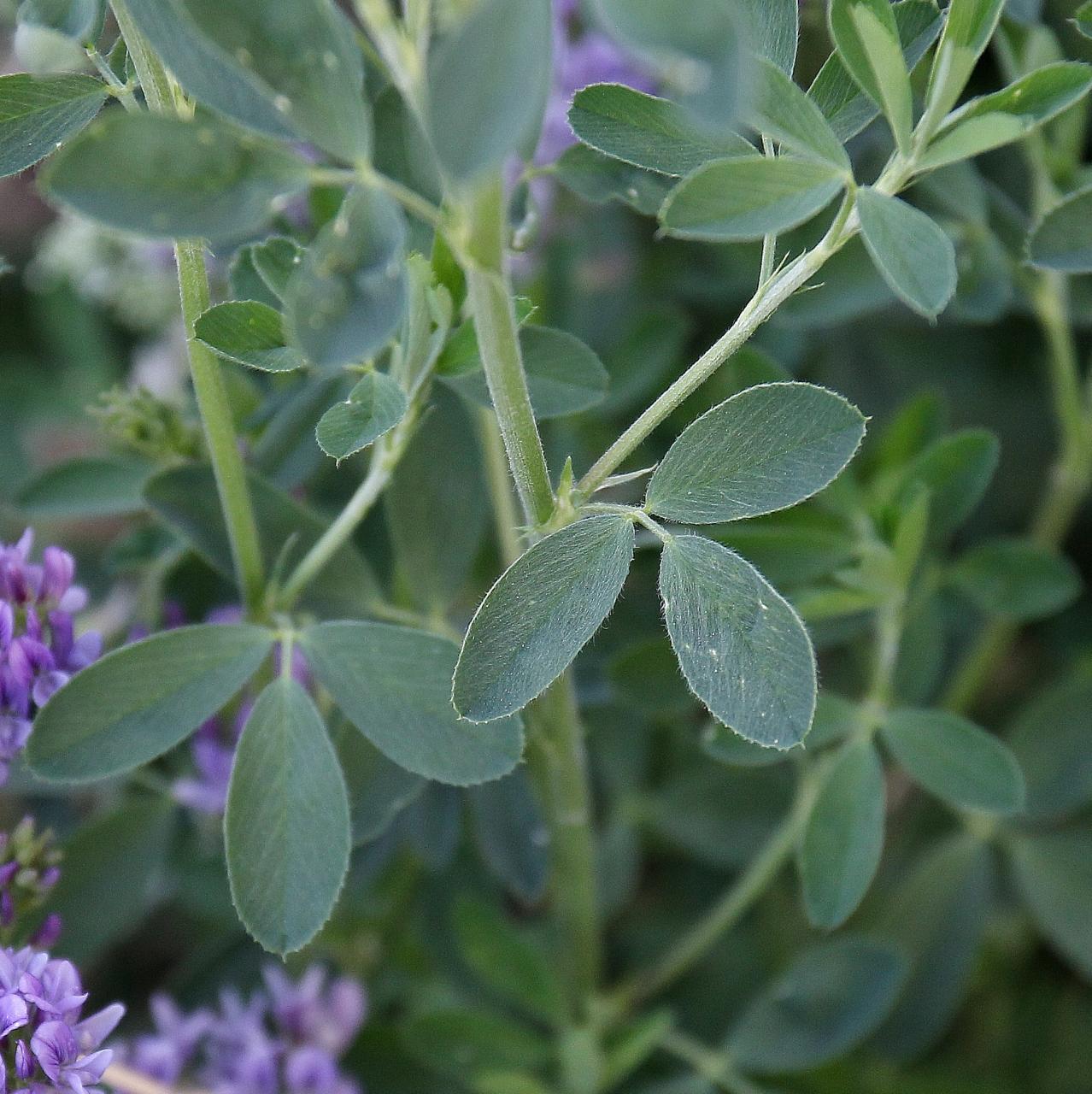Alfalfa has impressive health benefits, including its ability to lower cholesterol, improve digestion and protect heart health. It also helps improve respiratory conditions, detoxify the body, boosts immune system, speeds up healing, improves bowel movements, and reduce inflammation. Apart from this, it has anticancer properties.
It’s naturally high in many essential vitamins and minerals, including A, D, E, K, and even the full family of B vitamins; biotin, calcium, folic acid, iron, magnesium, potassium, amino acids, as well as being very high in protein, especially when dried. Alfalfa is of special interest to women because of its estrogenic activity.
It is “The king of all foods”!
Alfalfa extract is a good source of chlorophyll and carotene. It is important to insist on certified organic alfalfa, since the plant concentrates cadmium, copper, lead, nickel, and zinc when it is grown in contaminated soils.
Alfalfa is a tonic herb. The tastes are sweet, bitter, and earthy. It is energetically cooling.
The dried leaf or powder can be used in teas, made into capsules or herbal tablets, or infused as an herbal tincture. Alfalfa tea is mild and good tasting, and blends well with many other tonic herbs like nettle, mints, and citrus.
To make a nutritional tea with Alfalfa Leaves, simply add one cup boiling water to one teaspoon dried leaves together in your favorite cup. Cover with a saucer, allow to steep for 10 minutes, remove herbs, stir in honey and add a lemon if you wish. Using an infusion cup makes this chore easier.
Another way to add Alfalfa to your diet is sprouts. For people who want a nutritious boost in their diet, alfalfa sprouts are a low-calorie and delicious option. These young seedlings provide a number of impressive health benefits like promoting weight loss, preventing aging, managing diabetes, improving digestion, building bone health, helping heart health, and lowering cholesterol levels. Alfalfa sprouts are also a rich source of plant-based estrogen that boosts women’s health, reduces the symptoms of menopause, and regulates menstrual cycles.
Please be aware there are some issues with Alfalfa Sprouts. There are some potential side effects of alfalfa sprouts that should be taken into consideration, such as an increased risk of certain kind of cancers, worsening of autoimmune diseases, potential infections, dangerously low blood sugar levels and bleeding problems.
In your garden, Alfalfa builds organic matter in your soil, providing nutrients to plant roots. Its high nitrogen content helps other organic material to decompose. Organic matter also helps to prevent compaction, acts like a sponge and holds moisture in the soil, improves soil structure, and helps to prevent erosion.





